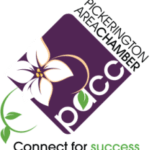Having a bruised face, arm, or knee is something most people find unattractive and unpleasant. While bruises are usually not serious, many are eager to learn how to speed up the healing process and get rid of bruises faster.
many are eager to learn how to speed up the healing process and get rid of bruises faster.
Bruises occur when an injury or blow causes blood vessels under the skin to break, leading to the leakage of blood. This results in discoloration, swelling, and pain.
In addition to injuries, bruises can also be caused by nutrient deficiencies, certain medications, or bleeding disorders. It’s worth noting that women tend to bruise more easily than men.
For those seeking quick remedies for bruises, there are numerous natural options available that are simple and effective. Additionally, I will address common questions related to bruises, such as the time it takes for a bruise to heal.
What is a Bruise?
A bruise forms when an area of the body experiences trauma, causing tiny blood vessels under the skin to rupture and release blood. This trapped blood gives rise to a tender, colorful spot on the skin, commonly known as a bruise or contusion. The good news is that bruises are not permanent, as the body eventually reabsorbs the blood, leading to the complete disappearance of the bruise.
Bruises can occur for various reasons, with accidental bumps and collisions being the most common causes. They can also result from external forces bumping into you.
If you’re wondering how to speed up the healing process and get rid of a bruise within 24 hours, it’s important to manage expectations, as it is unlikely to achieve such rapid results. Generally, minor bruises resulting from accidents or injuries take around two to three weeks to heal. In more severe cases, the healing process may take several months. However, utilizing natural remedies can potentially expedite the healing process. It’s worth noting that bruises go through various stages of color changes before completely fading away.
The Stages of Bruising
The stages of bruising involve the breakdown of hemoglobin, an iron-rich substance found in blood. This breakdown process leads to the transformation of the bruise’s color over time, passing through different stages:
1. Stage 1: Immediately after the injury, the bruise typically appears red due to fresh oxygen-rich blood accumulating under the skin.
2. Stage 2: Within one to two days, the bruise starts changing color, often turning purplish or black and blue by day three or four.
3. Stage 3: After five to ten days, the bruise takes on a yellow or greenish-yellow hue. This change in color is due to compounds called biliverdin and bilirubin, produced during the breakdown of hemoglobin.
4. Stage 4: In 10 to 14 days, the bruise becomes yellowish-brown or light brown.
Treatment for Bruises
If you’re seeking natural remedies to accelerate the healing process, consider the following approaches:
1. Cold & Hot:
Applying coldness, such as an ice pack wrapped in a thin towel, to the bruised area within the first 24 hours can help reduce swelling and alleviate pain. After a day or two, warm compresses or baths can aid in healing. So first apply ice then a heating pad will relieve pain and swelling and help a bruise heal faster.
2. Elevation:
If possible, elevate the bruised area above heart level. This is particularly effective for bruises on the legs as it helps reduce swelling and prevents blood from pooling.
 3. Top Foods to Heal Bruises:
3. Top Foods to Heal Bruises:
Apart from topical remedies, addressing bruise healing internally is crucial. Incorporate foods rich in vitamin K, vitamin C, and zinc into your diet, such as green leafy vegetables, citrus fruits, and lean proteins.
4. Foods to Avoid
Achieving optimal bruise healing involves not only adding beneficial foods to your diet but also eliminating certain foods that hinder the healing process and negatively impact overall health:
– Sugar: Refined sugar induces inflammatory responses in the body and hinders healing. Diets high in sugar, refined starches, saturated fats, and trans-fats, but low in omega-3 fatty acids, antioxidants, and fiber, promote inflammation. (9)
– Trans fats: Found in fast foods, fried products, and processed foods, trans fats trigger inflammation throughout the body. (10)
– Processed foods: Besides containing trans fats, processed foods may contain harmful chemicals, dyes, and additives.
– White and wheat products: These act as anti-nutrients, depleting beneficial vitamins and minerals from your body.
5. Essential Oils
Frankincense essential oil is an excellent choice for bruise healing due to its powerful anti-inflammatory properties. Apply a few drops of frankincense oil directly to the bruised area three times a day. Dilute the oil with a carrier oil if you have sensitive skin, and avoid contact with the eyes.
Cypress essential oil is another option known for improving bruises. Mix a drop or two of cypress oil with a carrier oil like coconut oil and apply it directly to the bruise.
6. Bromelain
Bromelain, an enzyme found in pineapple, possesses remarkable anti-inflammatory abilities, making it a top natural remedy to reduce swelling and bruising.
7. Vitamin C
As an antioxidant, vitamin C plays a crucial role in collagen production, vital for healing damaged blood vessels. People who bruise easily often have low blood levels of vitamin C. Increasing dietary intake of vitamin C or taking supplements has been shown to improve bruising.
8. Bioflavonoids
Rutin, a bioflavonoid, strengthens capillaries, making it effective in healing bruises. A study showed that a combination of vitamin C and rutin improved bruising in individuals with a chronic bruising disorder. Rutin is present in prunes, apricots, rose hips, the whitish rind of citrus fruits, and the core of green peppers, or it can be taken as a supplement in isolation or as part of a bioflavonoid complex.
9. Arnica Oil
Arnica is among the most popular natural remedies for bruises. It is commonly used topically to alleviate pain, swelling, and arthritis-related symptoms. Scientific research supports the benefits of arnica for bruising. For instance, a study found that a topical treatment containing 20 percent arnica accelerated bruise healing more effectively than a placebo or a low-level vitamin K topical treatment. (17)
Apply arnica oil or gel to the bruised area twice daily, as long as the skin is not broken.
10. Toothpaste
Some claim that toothpaste can help get rid of bruises. If using a natural toothpaste with peppermint oil, it may increase circulation and blood flow to the area, potentially aiding in bruise improvement.
Precautions
Contact your doctor if you experience the following:
– Severe and painful swelling in the bruised area.
– Frequent, large, and painful bruises, especially if they appear on the trunk, back, face, or develop without apparent cause.
– Formation of a lump (hematoma) over the bruise. [Read more about hematomas]
– Lingering pain three days after a seemingly minor injury.
– Easy bruising and a history of significant bleeding, such as during a surgical procedure.
– Abnormal bleeding from other areas, like the nose or gums.
– Sudden onset of bruising without a history of bruising.
– Family history of easy bruising or bleeding.
These signs and symptoms may indicate a more serious issue, such as a blood-clotting problem or a blood-related disease that requires attention.
If you develop a black eye, seek immediate medical care if you experience vision problems, severe pain, bruising around both eyes, or bleeding from an eye or the nose.
Discontinue the use of any topical bruise remedy if it causes a reaction. When using essential oils, perform a patch test first and use a carrier oil to minimize the risk of skin sensitivity.
If you have a medical condition or are taking medication, consult with your doctor before using any natural bruise remedies.
If you experience unexplained or increased bruising, check if you are currently taking any medications or supplements that could be causing it.
In conclusion, bruises result from injuries or blows that damage blood vessels beneath the skin. They change color as part of the body’s healing process, and it’s normal for bruises to go through various stages of color change. Typically, without treatment, bruises take two to three weeks to heal, but natural bruise remedies may expedite the process.
To treat bruises naturally, apply cold compresses initially, followed by warm compresses or baths. Consume foods rich in bromelain, vitamin C, and bioflavonoids to encourage healing. Avoid unhealthy foods that promote inflammation and hinder healing, such as sugar, trans fats, and processed foods. Additionally, essential oils like frankincense and cypress can aid in bruise healing.
If you experience specific symptoms or concerns related to bruising, consult your doctor for proper evaluation and treatment.
By following these natural bruise remedies, you can potentially speed up the healing process and find relief from bruise-related discomfort. Remember to be patient, as complete healing may take some time, depending on the severity of the bruise. [Why you may bruise after a massage]
 3. Top Foods to Heal Bruises:
3. Top Foods to Heal Bruises:


